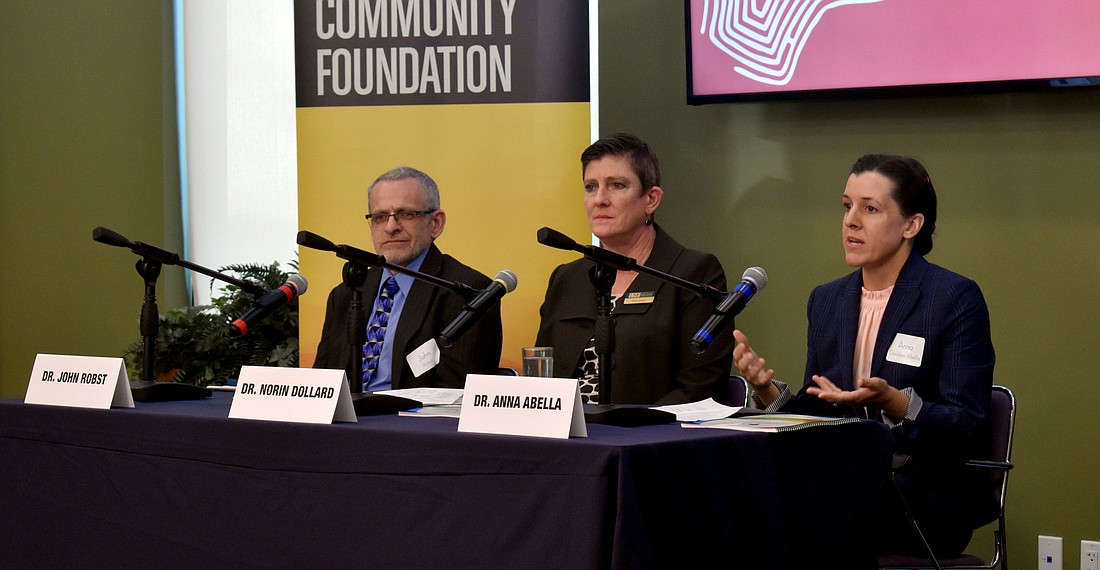- November 28, 2024
-
-
Loading

Loading

As commissioners plan the new budget, property owners in Sarasota County can likely expect an increase in property taxes.
Following less than four minutes of discussion, commissioners on July 14 approved a not-to-exceed millage rate that includes an increase to fund the county’s new Mental Health Care Special District.
Commissioners voted 3-2, with Commissioners Christian Ziegler and Ron Cutsinger dissenting, to increase the county’s millage rate by 0.0961 mills, 0.10 of which will support the new district.
That brings the fiscal year 2022 millage rate to 3.5561, an increase of 2.78% over fiscal year 2021’s millage rate of 3.46. The current estimated overall county budget for fiscal year 2022 sits at $1.5 billion.
The average taxable value of residential property in the county is $205,000, which means with the not-to-exceed rate, the average property owner can expect to pay $709. With the proposed increase, they would pay $729. Property values generally have exceeded growth expectations countywide, rising 6.3% — a number that outperformed original projections.
City leaders in Sarasota decided to set a not-to-exceed millage rate that would bring in the same amount of revenue as last year even with higher property values.
Commissioner Mike Moran first began discussions of the mental health district in 2019. However, commissioners decided to table a tax discussion as the county and residents dealt with the financial effects of COVID-19.
Now, commissioners say the dedicated revenue could give necessary financial support to organizations that provide services for mental health and substance abuse. They say the upfront cost could save the county more in the long run.
A 2019 University of South Florida study found the annual cost of untreated mental illness for residents under the age of 24 at more than $86 million.
Additionally, a 2019 assessment conducted by the Florida Department of Health in Sarasota County shows the county has one mental health care provider for every 600 residents, compared to a Florida metro average of one provider per 310 residents.
The one-tenth of a mill increase would generate an estimated $4 million for the district. The county doles out about $9 million in general funds a year to support mental health services and the new millage would be a way to fill in gaps, commissioners say.
"I'm happy to see it move forward," Moran said.
Cutsinger and Ziegler, who stressed they were in favor of the district but opposed to the tax increase, said the county should look for ways to fund the district that don’t involve a tax increase.
“When I ran for County Commission, I made a pledge and I made a commitment to not raise taxes,” Ziegler said.
Kim Radtke, the director of the office of financial management, reminded commissioners that they were setting the not-to-exceed limit. They will still be able to discuss the proposed rate during two budget public hearings before adoption of the budget at the end of September.
Aside from the millage increase, commissioners also took steps last week to support sports tourism in the county.
Commissioners July 13 unanimously approved a proposal that begins a process to set aside a pot of money annually to create a reserve for sports tourism. Five percent of the collected Tourist Development Tax, also known as the bed tax, will be dedicated to sports tourism under the plan.
This means that if in 2021 the TDT collected $20 million, $1 million would be set aside for sports tourism.
In previous meetings, Director of Parks, Recreation and Natural Resources Nicole Rissler said the funding stream will help the county attract competitive events to the county.